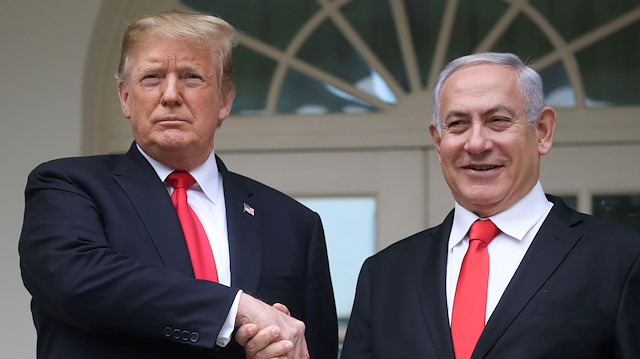
'There will be tough compromises' for Israel and Palestine, says Trump's adviser Jared Kushner
The long awaited Mideast peace plan, hailed as a solution to the Palestine-Israel conflict by U.S. President Donald Trump, will be revealed after the Islamic holy month of Ramadan, Trump’s son-in-law and senior adviser said Tuesday.
While Jared Kushner provided no details as to what the plan entails, he said that “there will be tough compromises for both sides.”
Kushner references to the two-state solution, a long-held framework for the solution to the conflict, saying that efforts made in the past have not worked.
“We’ve studied all the past efforts and how they failed and why they failed,” Kushner said in an interview at TIME 100 summit in New York.
“I think if people focus on the old traditional talking points, we will never make progress.”
The plan will be revealed in early June when Ramadan ends.
Jerusalem remains at the heart of the decades-long Middle East conflict, with Palestinians hoping East Jerusalem -- occupied by Israel since 1967 -- might one day serve as the capital of a Palestinian state.
Trump has been touting the “deal of the century” since taking office in 2017, with Kushner and Jason Greenblatt, Trump’s special envoy to the Middle East, working on the plan.
David Friedman, U.S. ambassador to Israel, revealed some aspects of the plan.
Israel would gain security control over the West Bank, which is occupied territory, according to the UN.
If so, it would be in line with similar moves Trump has made during his presidency to further isolate Palestinians during the process.
Last year, the U.S. cut all its funding for the UNRWA, which provides critical aid to Palestinian refugees; unilaterally recognized Jerusalem as Israel’s capital and closed the Palestinian Liberation Organization’s Washington office, which served as the de-facto Palestinian embassy in America.
Kushner said he is hopeful of the plan, saying the administration’s “unconventional approach” would address the need to make the lives of Palestinians better, while also addressing the security concerns of Israel.
“Hopefully it provides a framework to maybe break through a very, very difficult problem that’s been plaguing that region for a long time,” Kushner said.
Foreign ministers of the Arab League rejected the U.S. plan, saying that without giving the legal rights of the Palestinians, these kinds of plans will never bring comprehensive and lasting peace in the Middle East.


